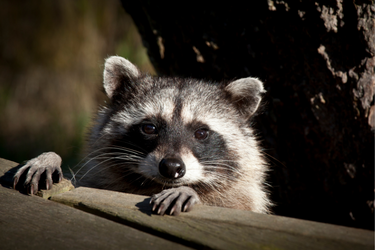
Written by Kayla Jane Barrie Updated on Nov 24, 2025 4 mins read

Rodents can cause extensive damage to your home. On average, the cost of repairs can cost upwards of $500 to $1,000 – can insurance help cover rodent damage? Or are you better to pay out-of-pocket for this unexpected expense?
Not only can they cause expensive repairs, but they can also carry diseases and cause structural damage to your property or house.
Learn if insurance will help you with a rodent damage claim, how to prevent critters from entering your home, and how to identify the signs of an infestation.
If you are concerned about rodent or mouse damage in your home, you may be wondering if home insurance will cover the costs related to repairs. Damage from rodents and vermin is generally excluded from your policy because it is a preventable issue.
Insurance is created to protect your property from accidental and unexpected damages – an infestation is often a problem that could be prevented by proper maintenance. Rodent-related problems don’t simply happen overnight. They are viewed as “wear and tear” issues.
There are specific circumstances where your insurer may pay for issues caused by rodents. For example:
A mouse chews through the electric wiring in your home, and it results in a fire. The company may cover the fire damage to your property since it was caused by an accidental electric issue.
Similar to damage related to rodents in your home, your insurance provider will likely not cover the costs associated with an exterminator or the removal of rodents from your home. If you fail to address prevention and initial signs of rodent-related damage, companies will see this as neglect and will likely not approve your claim.
The cost of removing vermin may not even be worth spending your insurance deductible, which can lead to higher premiums.
Always consider your insurance deductible before you choose to file a claim for rodent or pest damage. Depending on your deductible amount, it may not make sense for you.
For example, let's say you have a $1,000 deductible, and your policy includes pest damage. You notice mice damage and get a quote for repairs. It will cost $1,200 to fix. You have two options:
Always read your policy and check for exclusions. If you have any questions, talk to a ThinkInsure broker today.
Rodents find their way into homes because they are seeking food, warmth, and water. This is especially common in the fall, as temperatures cool and food sources become limited. Rodents enter homes through holes, cracks, open doors, and gaps in roofing tiles and siding.
Rodents are a common menace for homeowners, but you can prevent them from moving into your home in several ways.
If you suspect an infestation, always contact a pest control professional. They will be able to find the source of any damage and safely remove any pests from your home.

Even with home insurance in Ontario, you can’t completely protect your home from potential rodent issues. Here are some of the most common rodents to be mindful of in the province:
Rodents are a serious issue for homeowners that should not be ignored. It’s essential to recognize the signs of rodents and pests in your home so you can take prompt action to eliminate them. If you notice any of these signs, be sure to address them as soon as possible:
Did you know rodent teeth are stronger than copper, iron, and aluminium? This allowed them to chew through metal, PVC pipes, rock, aluminium, cinder blocks, wood, and other household materials. Here are some of the most common areas of damage from rodents and pests:
If your property has experienced damage from a raccoon, home insurance will likely not have it as a covered peril because the damage is likely preventable. To confirm what is excluded and included in your policy, contact ThinkInsure today.
Yes, rodents pose risks to your family because of the diseases they carry and the risk of structural damage to your home. Some diseases rodents carry include hantavirus, salmonellosis, and rat-bite fever. If you notice any signs of infestation, contact a professional for assistance with removal.
If you have comprehensive car insurance, your vehicle will likely be covered for any damages caused by rodents, such as frayed wires from chewing. Everyone’s policy is different, so be sure to read the fine print!
Prevention is the best bet to limit the chance of rodent damage in your home. Since the majority of insurers know the issue can be prevented, they will not cover extermination or damages. If you have any questions related to your policy, here’s why you should choose ThinkInsure.
| Categories | Home |
|---|---|
| Tags | Protect Your HomeHomeowners Claims |
Read our insurance blog to get helpful tips, information and news.
Ontario’s Project CHICKADEE dismantled a $25 million auto theft ring. Discover how this massive bust targets export enablers and what it means for rising Canadian insurance premiums.
Think refusing a breath test helps your case? In Ontario, it results in a minimum fine of $2,000 and a criminal record. Compare the penalties and protect your future.
Impaired driving in Ontario is a serious offence. Learn about impaired driving fines, penalties, statistics and other important information all drivers in Ontario need to be aware of before they get behind the wheel.
Learn why parking violations are non-moving, how long they stay on your record, and the serious indirect risk of unpaid tickets.